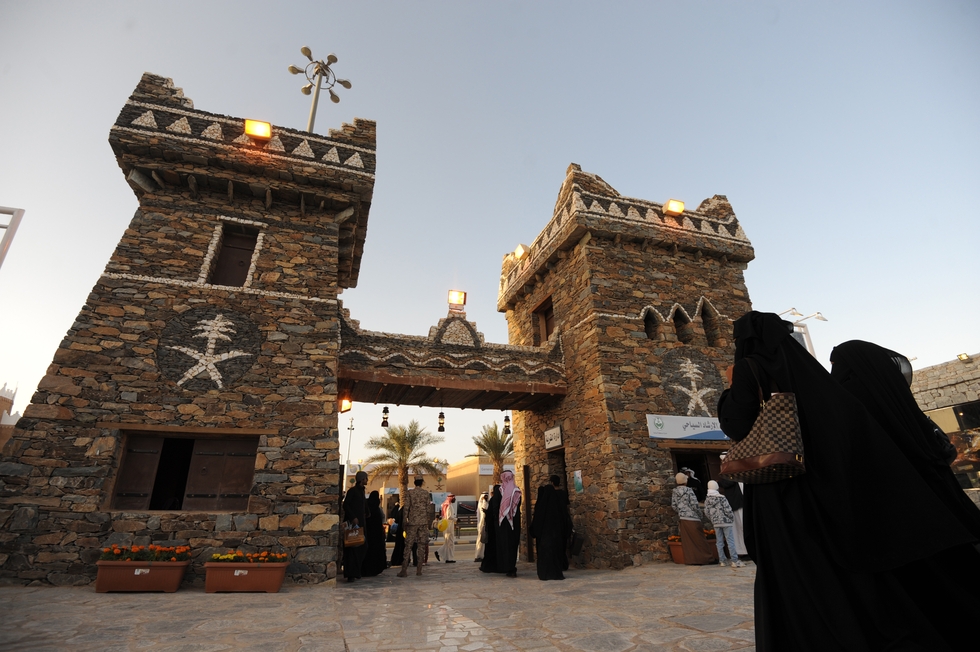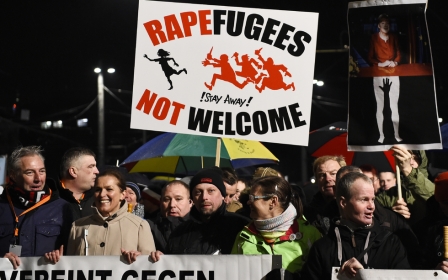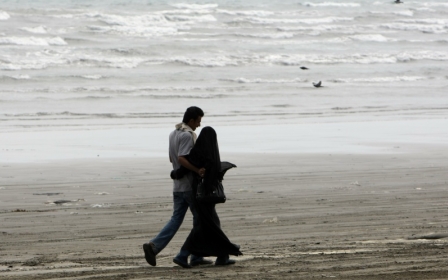Wahabism and the new doctrine of 'acceptable racism'

There is a silver lining to all the bloodshed, chaos, terror, destruction and overall human tragedy afflicting the Middle East today: across Western capitals everyone has become an expert in Islamic theology.
While Muslims continue to struggle to fully comprehend the differences between Sunni and Shia thought, or which hadith is trustworthy, journalists, activists and pundits from outside the region have sussed it out. They can tell a Sunni from a Shia, point to which school of thought is the most progressive and finally defined what words such as "jihad"; "fatwa"; or "Salafi" actually mean.
Who needs clerics or academics who've devoted their entire lives to understanding the religion when the free paper distributed outside your underground station has Islam all worked out.
Which is just as well because over the past 15 years not a day has gone by without the Middle Eastern religion featuring in the news agenda.
In the aftermath of 2001, the word "jihad" was all the rage. Arabic language acquired a new meaning and what initially meant "struggle" for the average Muslim to lead a more pious life rapidly changed definition to "violent brown man joining terrorist outfit to hook up with 70 virgin women".
Aside from the disturbing sexism displayed in such nefarious organisations – like, "what would women jihadis look forward to?" - lies the issue of religious lexicon and how over the years, perfectly innocuous words have been changed to suit different political agendas.
Now London and Washington no longer invade countries in a bid to bring democracy and save oppressed women but to fight the "jihadis" often trained in US-run prison facilities such as Abu Ghraib or Camp Bucca whose notable alumni include Abu Bakr al-Baghdadi.
The natural consequence of this media campaign has been to increase islamophobia to such levels that racist rhetoric has seeped so deeply into everyday discourse. Even once notable anti-racist and left-wing anti-war activists have taken to using some disturbing terminology.
Wahabism and the new left
Wahabism is a religious doctrine introduced to the Arabian Peninsula in the 18th century by a local scholar Mohamed Ibn Abd al-Wahab. He favoured a return of a puritanical form of worship or Salafism which would go on to become the hallmark of Islamic practice across the Gulf region.
There is no doubt Wahabism can be linked to extreme forms of worship that leave very little room for progressive debate. It is a very strict interpretation of Islam that has encouraged fanatical reasoning to take root but the reality is that beyond that perfectly legitimate criticism lies the issue of what meaning is attributed to it to suit different political agendas.
The word Wahabism today has taken a life of its own, far from the religious discourse and into the "how-to guide" of acceptable bigotry.
As Europe comes to term with the refugee crisis, masks are slipping and people once prone to supporting the causes of the oppressed are putting forward an incredibly intolerant narrative to oppose the arrival of these victims of war.
While the right-wing pundits are honest enough to deplore the arrival of dark-skinned foreigners, in more "liberal" circles the discourse takes on a more "intellectual" tone.
Fear of refugees is conveniently "re-packaged" as fear of the "Wahabis" "swamping" Europe.
While refusing the arrival of "hordes" of Arabs or Muslims sounds grossly racist and Islamophobic, deploring the presence of "hordes" of Wahabis suddenly gives this discourse a veneer of acceptability.
"They can't adapt to our culture" has become a staple of the "liberal bigot's" discourse, because you know, they're all women-hating Wahabis!
Never mind that Syrians or Iraqi refugees don't follow the Wahabi creed, branding them as such means once-proud liberals who always championed the victim can say things previously thought of as - well a bit racist.
In fact, now that Wahabism has entered the mainstream discourse and is a doctrine apparently understood by all and sundry, it becomes the new convenient label you can add to any one you don't like from the Middle East.
They're all Wahabis now
Dismissing anyone from the Arab world you disagree with as a tyrant or a dictator-lover is so last decade, today Wahabi is the necessary go-to card.
And so all those fleeing wars, financed by the Gulf monarchies who practise Wahabism, are now Wahabis. This has become the latest gem in "progressive" circles to oppose the arrival of victims of wars - initiated or funded by a Europe with the help of Turkish and Gulf Arab allies - still keen on meddling in Arab affaires: call everyone a Wahabi.
Meanwhile, for those supportive of Syrian sovereignty and who have therefore been backing Bashar al-Assad comes a major sore point. Very often, these new "Islamic scholars" have weighed in on the side of the Syrian president because he is "Western-educated" and his wife, well "she looks Western". In fact, many have even pointed to the fact she doesn't wear a headscarf - unlike all those other Middle Eastern women, to base their support for the first couple of Syria.
Yet their fellow Syrians who are fleeing the terrorists looking to impose, through violence, the said headscarf, are described as Wahabis looking to invade Europe and turn the continent into the Caliphate that they are escaping from.
Details will never be the strong point of the closet racists who find themselves echoing the very same discourse once reserved for fringe elements whose idea of a perfect Europe resembles one once envisaged by an Austrian megalomaniac who went on to leave a trail of bloodshed and destruction across much of the continent.
Silence on the cause of refugee crisis
There is of course a perfectly healthy and understandable debate to have in relation to the mass refugee influx we have been seeing in the past year. It is also perfectly reasonable for any nation to police their borders and smaller countries such as Hungary should not bear the brunt of policies of more powerful nations responsible for the crisis in the first place.
A cursory look at where refugees are coming from and the correlation between Western foreign policy and this latest tragedy in the Middle East becomes apparent.
From a destroyed Iraq still suffering from the consequences of the US-led invasion of 2003 to a now failed Libya, the bulk of those fleeing their homelands are escaping conflicts that could and should have been avoided but were either carried out or encouraged through indirect funding and meddling.
The people now opposing the arrival of these refugees should be as vocal if not more when their own governments go to war and cause the ensuing crisis.
It is astonishing that far right groups such as PEGIDA, born in Germany, have developed across Europe to reach even former victim of imperialism: Ireland.
Yet none of that strong grassroots political organisation was devoted to opposing the wars that led to the creation of this refugee crisis in the first place and which was naturally predictable in light of the history of previous conflicts.
Whether on social media or on the streets of Europe one thing is apparent: racism is far easier than anti-war activism and "Wahabism" has just made it that much simpler.
- Hafsa Kara-Mustapha is a journalist, political analyst and commentator with a special focus on the Middle East and Africa. She has worked for the FT group and Reuters and her work has been published in the Middle East magazine, Jane's Foreign report and a host of international publications. A regular pundit on TV and radio, Hafsa can regularly be seen on RT and Press TV.
The views expressed in this article belong to the author and do not necessarily reflect the editorial policy of Middle East Eye.
Photo: Saudis attend the Janadriyah festival of Heritage and Culture held in the village of Al-Thamama, 50 kilometres north of the capital Riyadh, on 8 February, 2016 (AFP).
New MEE newsletter: Jerusalem Dispatch
Sign up to get the latest insights and analysis on Israel-Palestine, alongside Turkey Unpacked and other MEE newsletters
Middle East Eye delivers independent and unrivalled coverage and analysis of the Middle East, North Africa and beyond. To learn more about republishing this content and the associated fees, please fill out this form. More about MEE can be found here.





